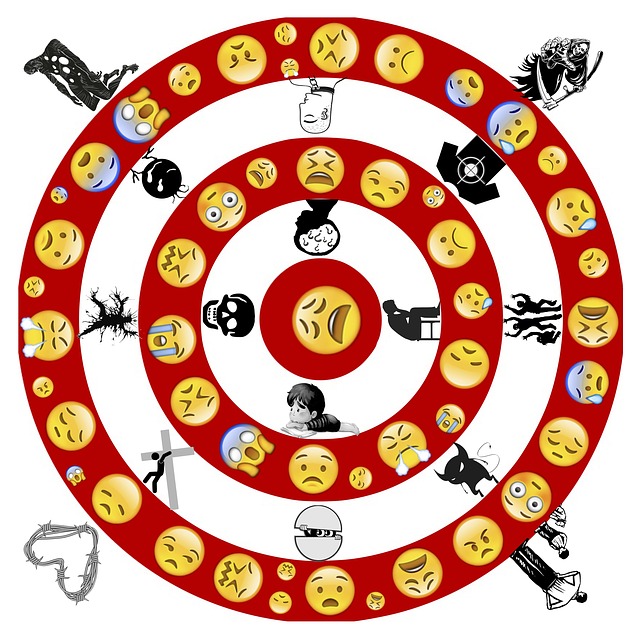As humans, we experience a wide range of emotions on a daily basis. From joy to anger, fear to excitement, our emotional responses can have a significant impact on our overall well-being.
However, there are times when our emotions can become overwhelming and difficult to manage in the moment. Learning how to control your emotions in the moment is an essential skill for maintaining healthy relationships, reducing stress and anxiety, and improving your mental health.
While it may seem daunting at first, with practice and patience, anyone can learn effective techniques for regulating their emotions. In this article, we will explore some helpful tips and strategies that you can use to gain better control over your emotions and lead a more balanced life.
Recognize Your Triggers
 Identifying triggers is the first step in learning how to control your emotions in the moment. Triggers are situations, people, or things that cause emotional reactions. They can be anything from a certain sound to a specific memory.
Identifying triggers is the first step in learning how to control your emotions in the moment. Triggers are situations, people, or things that cause emotional reactions. They can be anything from a certain sound to a specific memory.
Once you have identified your triggers, you can begin to develop coping mechanisms. To identify your triggers, pay attention to how you feel in different situations. Notice what causes you to feel angry, anxious or upset. It may be helpful to keep a journal of your emotions and write down what was happening when you felt them. This will help you recognize patterns and understand what triggers your emotional responses.
Once you have identified your triggers, it’s important to develop coping mechanisms that work for you. Coping mechanisms are techniques that help reduce stress and manage emotions. These can include deep breathing exercises, mindfulness practices, talking to a trusted friend or therapist, or engaging in physical activity like yoga or jogging.
The key is finding what works best for you and using it consistently when faced with triggering situations.
Practice Mindfulness
When we’re feeling overwhelmed with emotions, it can be difficult to stay present in the moment. One way to combat this is through practicing mindfulness. Mindfulness is the act of being fully present and aware of your surroundings, thoughts, and feelings without judgment.
There are numerous benefits to practicing mindfulness. It has been shown to reduce stress, anxiety, and depression. Additionally, it can improve focus and enhance overall well-being. By incorporating mindfulness into your daily routine, you’ll be better equipped to handle challenging situations as they arise.
If you’re a beginner looking to start practicing mindfulness, there are several techniques you can try. Here are three mindfulness exercises for beginners:
– Body Scan: Lie down or sit comfortably and bring attention to each part of your body starting from your toes and working up towards the top of your head.
– Breath Awareness: Focus on your breath as you inhale and exhale. Notice the sensation of air entering and leaving your body.
– Walking Meditation: Take a slow walk while focusing on each step you take. Notice the feeling of your feet hitting the ground and any other sensations in your body.
By incorporating these techniques into your daily routine, you’ll gradually become more mindful in all aspects of life. Remember that like any new habit, it takes time and practice to see results. Be patient with yourself as you begin this journey towards greater emotional control through mindfulness.
Take Deep Breaths
As we discussed in the previous section, practicing mindfulness can be an effective way to manage your emotions in the moment. However, there may be situations where you need a more immediate solution. That’s where taking deep breaths can come in handy.
In this section, we’ll explore some techniques for deep breathing and the benefits it can bring.
The benefits of deep breathing are numerous. When you take deep breaths, you increase the amount of oxygen that flows into your body. This helps to lower your heart rate and blood pressure, which can help to reduce feelings of stress and anxiety. Deep breathing also triggers the relaxation response in your body, which is the opposite of the fight or flight response that often accompanies intense emotions.
To practice deep breathing, start by finding a quiet place where you won’t be disturbed. Sit comfortably with your back straight and your feet flat on the ground. Close your eyes and focus on your breath as it enters and leaves your body. Take slow, deep breaths through your nose and exhale slowly through your mouth. You might find it helpful to count to four as you inhale and then count to six as you exhale.
Another technique for deep breathing is called diaphragmatic breathing. This involves focusing on expanding your belly as you inhale rather than just filling up your lungs with air. To practice this technique, lie down on a flat surface with one hand on your chest and one hand on your belly. As you inhale deeply through your nose, focus on pushing out your belly so that it rises under your hand while keeping the hand on your chest relatively still.
Remember that taking deep breaths is just one tool in managing difficult emotions in the moment. It’s important to practice these techniques regularly so that they become second nature when you need them most.
By incorporating deep breathing into our daily routine, we can build resilience and better cope with life’s challenges without feeling overwhelmed by our emotions.
Engage In Physical Activity
Alright folks, let’s get physical! Engaging in physical activity is one of the best ways to regulate your emotions in the moment.
The benefits of exercise for emotional regulation are vast and well documented. When you engage in physical activity, your body releases endorphins which help to reduce stress and anxiety. In addition, exercise also helps to increase serotonin levels which can improve mood and overall wellbeing.
There are many different types of physical activities that can be helpful for emotional regulation. Some people find that going for a run or participating in high-intensity interval training is effective for reducing stress and anger. Others prefer low-impact activities such as yoga or Pilates to calm the mind and relax the body. Swimming, hiking, dancing, and even gardening can all be great options as well.
It’s important to remember that any type of physical activity can be beneficial for regulating emotions. The key is to find what works best for you and make it a regular part of your routine.
Whether it’s a daily jog around the block or a weekly yoga class, incorporating physical activity into your life can help you feel more grounded, centered, and emotionally balanced.
So get moving, release those endorphins, and let’s regulate those emotions!
Reframe Negative Thoughts
It can be challenging to control our emotions in the moment, especially when we are feeling overwhelmed or stressed. One effective technique for managing negative emotions is to reframe negative thoughts. This means challenging our negative self-talk and replacing it with positive affirmations.
To begin reframing negative thoughts, it’s important to challenge ourselves to identify when we are engaging in negative self-talk. This may involve paying attention to our inner dialogue and questioning whether our thoughts are based on facts or assumptions. Once we have identified a negative thought, we can begin to challenge it by asking ourselves if there is evidence to support it.
Next, we can replace negative thoughts with positive affirmations. This involves creating statements that counteract the negative thought and promote positive thinking. For example, if we find ourselves thinking ‘I’m not good enough,’ we can challenge this thought by asking ourselves if there is evidence to support it. Then, we can replace this thought with a positive affirmation such as ‘I am capable and deserving of success.’
Practicing reframing techniques takes time and effort, but the benefits are well worth it. By challenging our negative self-talk and replacing it with positive affirmations, we can improve our mood, reduce stress levels, and increase resilience in the face of adversity.
– ‘I am capable of handling difficult situations.’
– ‘I choose to focus on what I can control.’
– ‘My feelings do not define me.’
– ‘I trust myself to make wise decisions.’
Remember that reframing negative thoughts is not about ignoring or denying difficult emotions, but rather about shifting our perspective and empowering ourselves to respond in a more constructive way. With practice and patience, you can learn to manage your emotions in a healthy way and cultivate a more positive mindset overall.
Seek Support From Others
Reframing negative thoughts can be an effective way to control your emotions in the moment. However, sometimes, reframing may not be enough or even possible. When this happens, seeking support from others can make a huge difference. It is important to remember that you do not have to go through difficult emotions alone.
One way of seeking support is through group therapy. Group therapy provides a safe and supportive environment where you can share your struggles with others who are going through similar experiences. This can help you feel less isolated and give you a sense of belonging. Additionally, group therapy can provide you with valuable feedback and coping strategies from other participants.
Another way of seeking support is through professional counseling. A mental health professional can help you identify the root causes of your emotions and develop effective coping mechanisms. They can also provide personalized guidance and support tailored to your specific needs. Additionally, professional counseling can help you gain insight into yourself and improve your overall emotional well-being.
Family support and peer mentorship are additional avenues for seeking support when dealing with difficult emotions. Family members and peers who have gone through similar experiences can offer empathy, understanding, and practical advice on how to cope effectively. Whether it’s a trusted family member or a peer mentor from a community organization, reaching out for help can make all the difference in managing overwhelming emotions.
Remember that seeking support is not a sign of weakness but rather an act of courage and self-care. There are various resources available to help you manage your emotions effectively, including group therapy, professional counseling, family support, and peer mentorship.
Don’t hesitate to reach out for help when you need it most – it could be the first step towards healing and growth!
Develop A Self-Care Routine
Developing a self-care routine is crucial in managing your emotions in the moment. It’s important to prioritize yourself and take care of your emotional well-being. Self-care can look different for everyone, but here are some tips to get you started:
Firstly, journaling benefits the mind by allowing you to release your thoughts and feelings onto paper. Writing down what’s on your mind can help you process your emotions and gain clarity. It can also serve as a form of self-reflection, allowing you to track any patterns or triggers that may be causing certain emotions.
Secondly, setting boundaries is essential in maintaining a healthy balance between work and personal life. Boundaries can come in many forms, such as saying no to extra commitments, taking breaks when needed, or turning off notifications during designated times. By setting boundaries, you are giving yourself permission to prioritize your needs and avoid burnout.
Lastly, finding activities that bring you joy and relaxation can help soothe overwhelming emotions. Whether it’s reading a book, practicing yoga or meditation, or indulging in a hobby, carving out time for enjoyable activities can provide a sense of calmness and reduce stress levels.
Remember that taking care of yourself is not selfish; it’s necessary for your overall well-being. Incorporating these self-care practices into your daily routine can help manage intense emotions in the moment and promote long-term mental health.
Frequently Asked Questions
What Are Some Common Misconceptions About Controlling Emotions?
Did you know that 90% of people believe that suppressing emotions is an effective way to control them?
However, research shows that suppressing emotions can actually lead to negative consequences such as increased stress and anxiety.
As a mental health counselor, I always emphasize the role of mindfulness in managing emotions.
Mindfulness allows us to observe our thoughts and emotions without judgment, which helps us become more self-aware.
Self-awareness is crucial for controlling our emotions because it allows us to recognize when we are starting to feel overwhelmed or reactive, and take steps to regulate ourselves before things escalate.
So remember, instead of trying to suppress your emotions, practice mindfulness and self-awareness for more effective emotional control.
How Do Cultural Differences Affect Emotional Regulation Techniques?
Cultural influences play a significant role in shaping the emotional regulation techniques that individuals use.
Cross cultural comparisons indicate that some cultures encourage emotional expression, while others value emotional restraint.
For instance, in collectivistic cultures, individuals may prioritize maintaining harmony and avoiding conflict over expressing their emotions.
In contrast, individualistic cultures may place greater emphasis on self-expression and assertiveness.
Understanding how cultural differences affect emotional regulation can help individuals develop more effective coping strategies that align with their cultural values and beliefs.
As a mental health counselor, it is crucial to explore these cultural factors to provide culturally sensitive interventions to clients from diverse backgrounds.
Can Medication Be Helpful In Controlling Emotions?
Medication can be a game-changer in controlling emotions, but it’s not always the best option.
While some medications are highly effective, there are alternative approaches to consider.
As a mental health counselor, I’ve seen firsthand how medication can help people feel more stable and able to function in their daily lives.
However, it’s important to weigh the potential side effects and long-term effects before starting medication.
Additionally, therapy and lifestyle changes can also be effective in managing emotions without relying on medication.
It’s essential to work with a healthcare professional to determine the best approach for your individual needs.
Remember, finding the right balance is key – whether it involves medication or other techniques.
How Can Past Traumas Impact Emotional Regulation In The Present Moment?
Trauma triggers can have a significant impact on emotional regulation in the present moment.
When past traumas are triggered, individuals may experience intense emotions that feel overwhelming and difficult to control.
Coping mechanisms such as mindfulness, grounding techniques, and deep breathing exercises can be helpful in managing these emotions.
It’s important to recognize that healing from past traumas is a process and seeking support from a mental health professional can provide additional tools and guidance towards emotional regulation.
What Are Some Effective Long-Term Strategies For Improving Emotional Regulation Skills?
Improving emotional regulation skills can be a challenging journey, but it is possible with the right techniques and support.
Mindfulness techniques and cognitive behavioral therapy are two effective long-term strategies that can help individuals learn to manage their emotions more effectively.
Mindfulness involves learning to be present in the moment, observing thoughts and emotions without judgment, and developing greater self-awareness.
Cognitive behavioral therapy helps individuals identify negative thought patterns and replace them with more positive ones.
As a mental health counselor, I often work with clients on developing these skills to improve their overall well-being and quality of life.
Conclusion
In conclusion, controlling our emotions in the moment can be challenging. It’s important to understand that there are common misconceptions about emotional regulation, such as the belief that we should always strive to suppress our emotions.
Instead, it’s essential to learn how to manage them effectively.
Cultural differences can also play a role in how we regulate our emotions. Medication may be helpful for some individuals, but it’s not always the best solution.
Past traumas can impact our ability to control our emotions, but with time and effort, it is possible to develop effective strategies for improving emotional regulation skills.
As a mental health counselor, I encourage you to seek support and guidance when necessary so that you can live a more fulfilling life with healthy emotional responses.
Remember that regulating your emotions is an ongoing process, but with practice and patience, you can achieve greater balance and well-being in your daily life.









